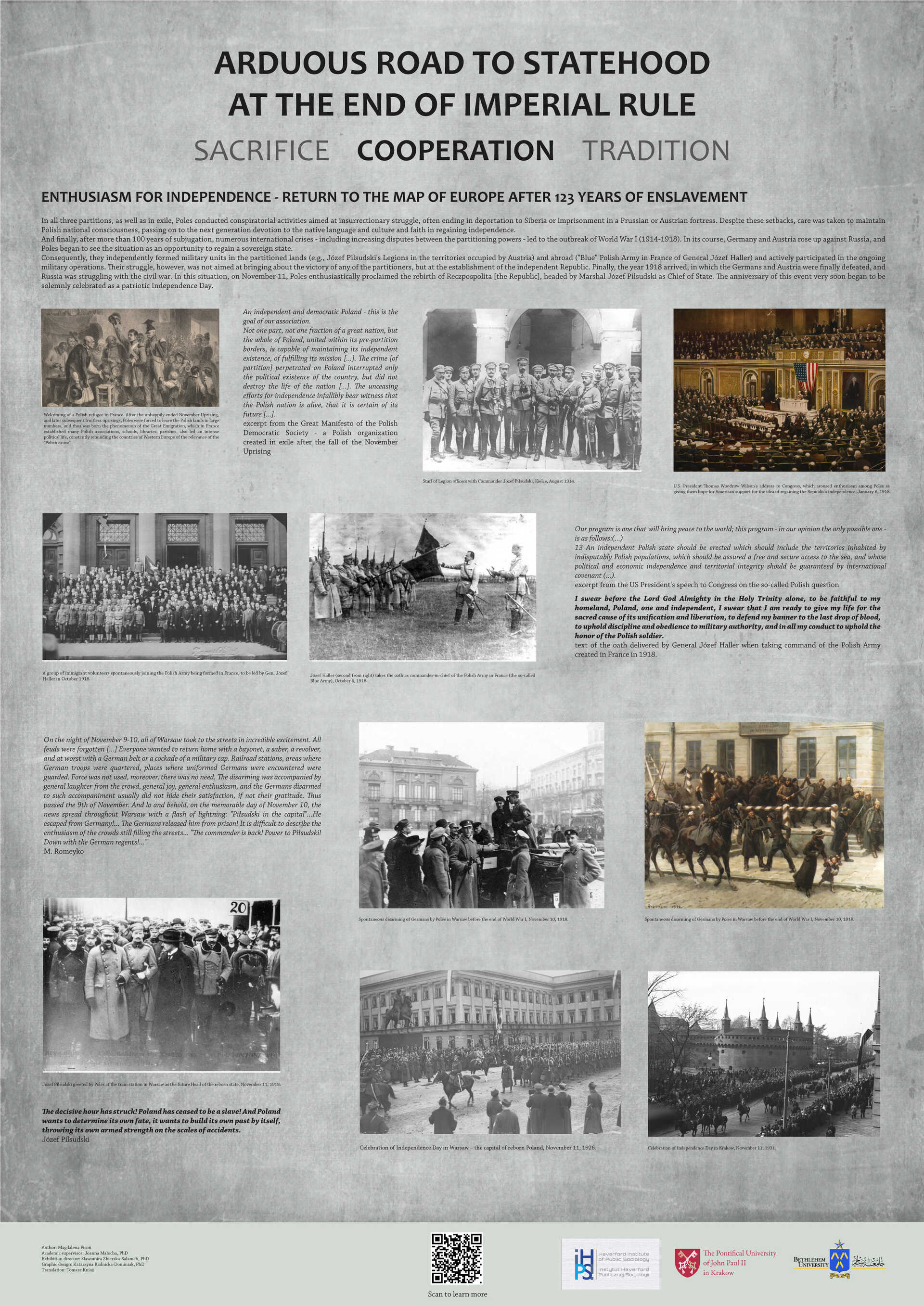IV. Enthusiasm for independence

You can download the HQ PDF version of the poster HERE.
Enthusiasm for independence - return to the map of Europe after 123 years of enslavement
In all three partitions, as well as in exile, Poles conducted conspiratorial activities aimed at insurrectionary struggle, often ending in deportation to Siberia or imprisonment in a Prussian or Austrian fortress. Despite these setbacks, care was taken to maintain Polish national consciousness, passing on to the next generation devotion to the native language and culture and faith in regaining independence.
And finally, after more than 100 years of subjugation, numerous international crises - including increasing disputes between the partitioning powers - led to the outbreak of World War I (1914-1918). In its course, Germany and Austria rose up against Russia, and Poles began to see the situation as an opportunity to regain a sovereign state.
Consequently, they independently formed military units in the partitioned lands (e.g., Józef Pilsudski's Legions in the territories occupied by Austria) and abroad ("Blue" Polish Army in France of General Józef Haller) and actively participated in the ongoing military operations. Their struggle, however, was not aimed at bringing about the victory of any of the partitioners, but at the establishment of the independent Republic. Finally, the year 1918 arrived, in which the Germans and Austria were finally defeated, and Russia was struggling with the civil war. In this situation, on November 11, Poles enthusiastically proclaimed the rebirth of Reczpospolita [the Republic], headed by Marshal Józef Pilsudski as Chief of State. The anniversary of this event very soon began to be solemnly celebrated as a patriotic Independence Day.



